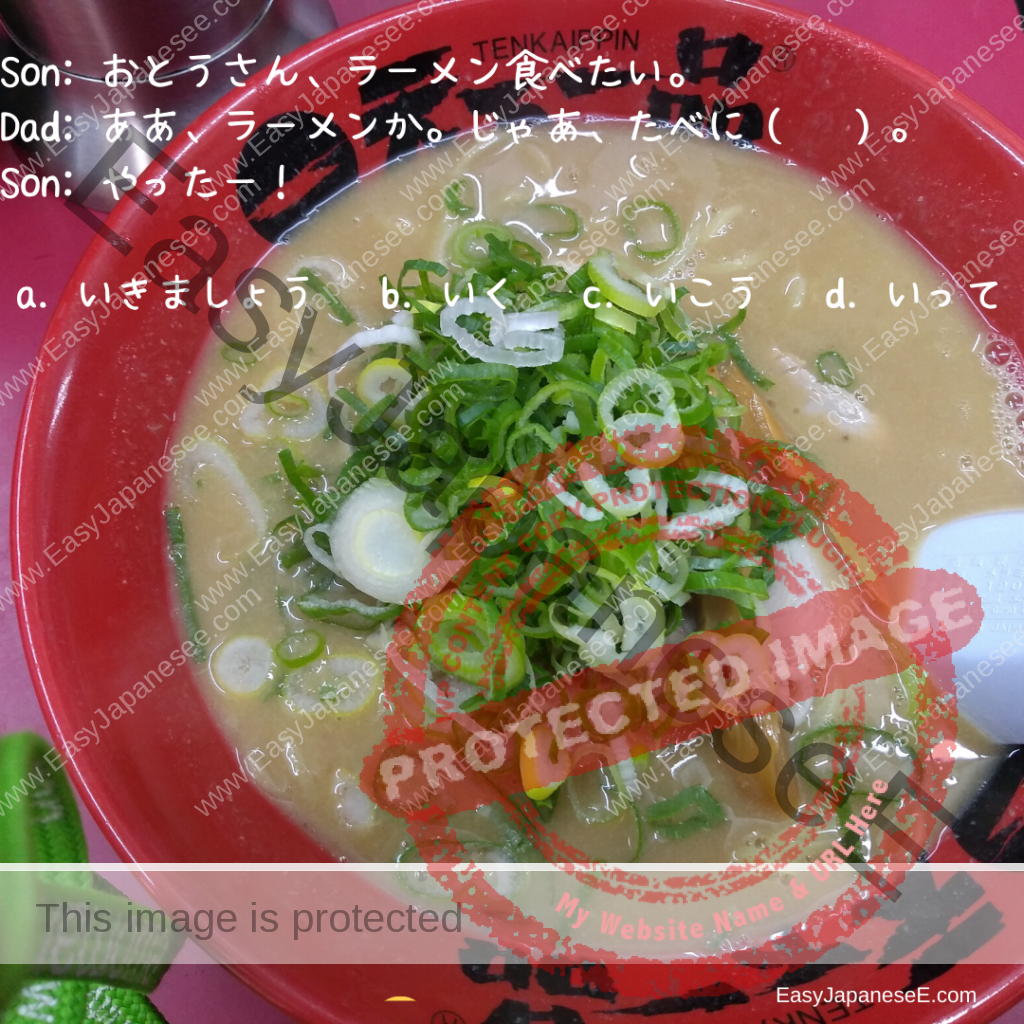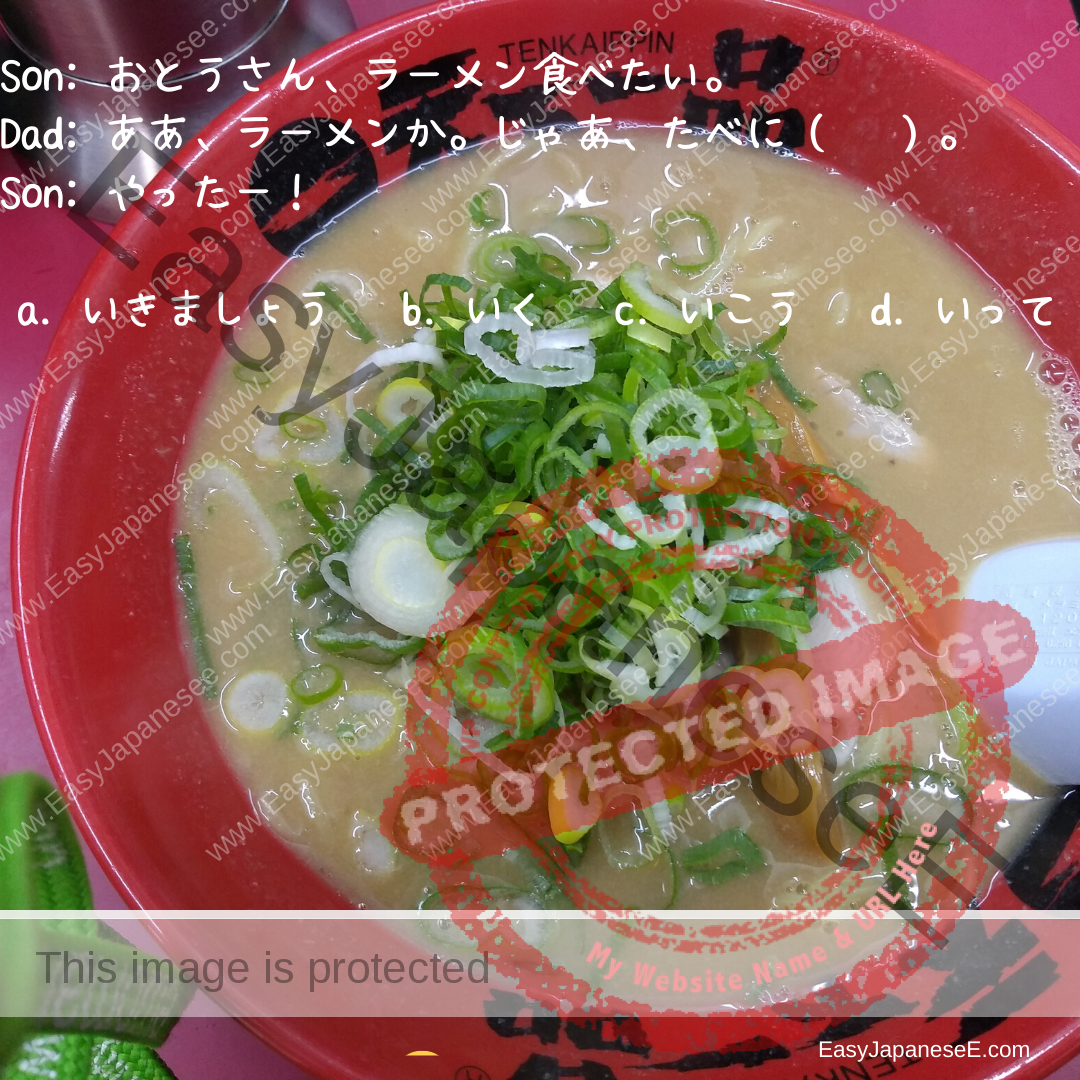
Son: おとうさん、ラーメン食べたい。
Dad: ああ、ラーメンか。じゃあ、たべに( )。
Son: Dad, I want to eat ramen.
Dad: Oh, ramen? Then, (…go/eat…).
Son: Hurray!
Because the son is happy with Dad’s reaction, the most likely phrase would be “OK, let’s go and eat it.” and it’s unlikely that dads talk to their son in the polite form, so the most likely answer is c. いこう,
The verb form of いきましょう/いこう meaning “Let’s ~” is often called volitional form and いきましょう is the polite volitional form of the verb いきます/いく and いこう is the plain/casual volitional form of that.
The polite volitional form is very easy. You only need to change ~ます ending into the ~ましょう ending.
The formula to change -ます form into its plain volitional form is:
<irregular verbs>
きます/くる → こよう
します/する → しよう
いきます/いく → いこう
あります/ある → あろう (hardly used)
<ichi-dan verbs> [stem]ます/[stem]る → [stem]よう
たべます/たべる → たべよう
みます/みる → みよう
<go-dan verbs> -iます/-u → -oう
かいます/かう → かおう
すみます/すむ → すもう
ききます/きく → きこう
いそぎます/いそぐ → いそごう
By the way, if you have chosen b. いく, that means the dad will go and eat it by himself, so the son won’t say やったー. If you chose d. いって, that means “Go and eat it (by yourself),” so unless the son is a teenage boy or so, he won’t say やったー, either (and if he is an annoying teenage boy, it’s unlikely for him to call his father おとうさん).
If you liked this article, please share it with your friends using the social media buttons below.
Also, your clicks on ads on this page help covering the cost of running this website. Your support will be much appreciated.

